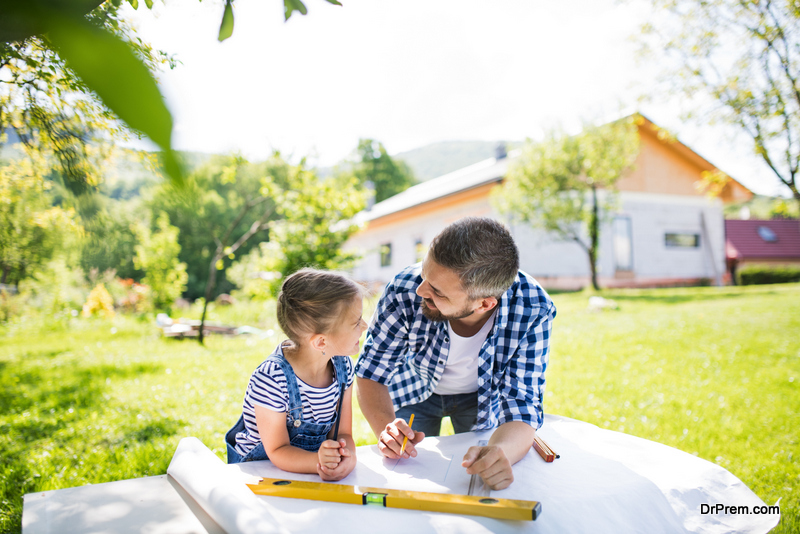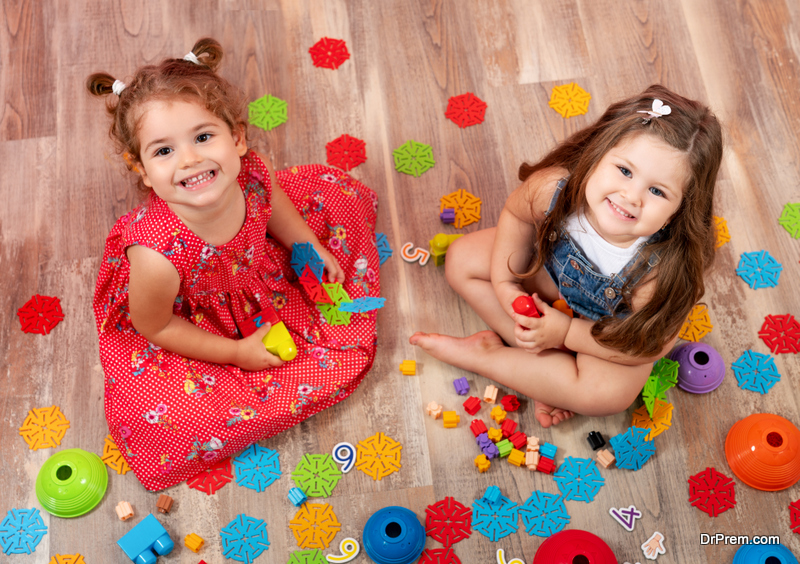Social skills are an incredibly critical element to a child’s growth and development, shaping them into the person they’ll be as adults. Those who lack social skills are more likely to have substance abuse issues, relationship problems, addictions and legal trouble. But those with a solid grasp on skills like listening, communication, patience and respect will flourish into a strong, independent adult. Moreover, these skills will allow children and adults to establish strong bonds between peers and communicate effectively.
Ideally, school-age children would enter the classroom with these skills already in hand. However, kids are still developing and learning even as they enter the classroom and move from grade to grade. As a parent, the biggest impact you can make on your child is to begin teaching them these skills early on so they have a foundation upon which they can expand their knowledge and social skills.
1. Listening
 Listening doesn’t simply mean staying quiet. Rather, it entails active, trained ears and a mind that absorbs what is being said. This skill is extremely important in academic, professional and social settings. For instance, in order to succeed in school, students must be able to listen to and retain information. And any healthy relationship requires a fair amount of listening before forming an adequate, thoughtful response.
Listening doesn’t simply mean staying quiet. Rather, it entails active, trained ears and a mind that absorbs what is being said. This skill is extremely important in academic, professional and social settings. For instance, in order to succeed in school, students must be able to listen to and retain information. And any healthy relationship requires a fair amount of listening before forming an adequate, thoughtful response.
Of course, this skill may not be the easiest to teach your little one but, with repeated practice, they will begin to listen actively. Try reading a book or telling a story to your child and periodically asking them to recount the tale thus far. Fill in the gaps where they leave out information and encourage them to continue listening as you speak. Additionally, don’t allow your kids to interrupt you when you’re talking. This will help in setting up respectful, mindful conversation as they grow.
2. Obedience
Test their listening skills further by asking them to follow directions or complete a specific task. Obedience skills will save them from experiencing the consequences of poor behavior. From being expelled for cheating on a test to getting arrested as an adult, disobedience can have some serious repercussions. So it’s crucial you instill this important, lifelong skill in your child while they are still young.
Practice obedience skills by giving your child one command at a time, giving them more instructions as they complete each bit of instruction. For example, ask your child to pick up their clothes. Then, once they’ve done so, tell them to take the shoes to their room. As they grow older, instructions will become more complex and their listening skills and obedience will be tested, helping them grow and mature into a well-rounded adult.
3. Communication
 But, as all parents know, kids don’t just listen and obey — they talk back. And, sometimes, the words they choose to use are defiant and unkind. Although this is communication, it certainly isn’t the most effective form. At different stages, children need to communicate at appropriate levels. Babies, for instance, communicate best by pointing or showing adults different objects. However, as children reach 15 months of age, they begin using words to express themselves and, by the time they’re four, they are using longer, more complex sentences.
But, as all parents know, kids don’t just listen and obey — they talk back. And, sometimes, the words they choose to use are defiant and unkind. Although this is communication, it certainly isn’t the most effective form. At different stages, children need to communicate at appropriate levels. Babies, for instance, communicate best by pointing or showing adults different objects. However, as children reach 15 months of age, they begin using words to express themselves and, by the time they’re four, they are using longer, more complex sentences.
Teach your child to communicate effectively by doing so yourself. Use kind words and encouraging language and remember to incorporate positive body language like smiling, high-fiving and laughing. Incorporate respectful verbiage like please and thank you into everyday conversation. And try to begin, maintain and end conversations with your child as naturally as possible to set a proper example of good communication skills.
4. Cooperation
The act of working together to accomplish a common goal is an extremely important social skill that most kids begin to learn around age three. When kids cooperate, they have more positive social interactions and are better able to make and keep friends. Moreover, working together as a team makes tasks easier, quicker and more achievable than if they had tried to work alone.
Encourage cooperation in your child by role-playing. Pretend you’re one of their classmates and work together to complete a project. Pay close attention to how your child responds when you ask for input or help. Do they want to complete the task by themselves? Are they reluctant to offer their opinion or advice? Noticing these subtleties will cue you in to how your child cooperates with others and how you might be able to work towards taking turns and completing tasks as a team instead of as individuals.
5. Sharing
 Of course, you can’t have successful cooperation without sharing. However, taking turns and allowing others to play with their toys can be very difficult for kids at first. Most kids won’t even begin to share until four or five when they begin transitioning from parallel play to associative and social play. So, by the time they reach kindergarten, it’s important you teach them the importance of sharing.
Of course, you can’t have successful cooperation without sharing. However, taking turns and allowing others to play with their toys can be very difficult for kids at first. Most kids won’t even begin to share until four or five when they begin transitioning from parallel play to associative and social play. So, by the time they reach kindergarten, it’s important you teach them the importance of sharing.
One way to encourage sharing is to set visual limits, like a timer, to let kids know when it’s time to give up a toy and move on to another. And, before a playdate, remind them it’s totally acceptable for friends to play with their toys for a while. Sharing is part of being a good friend and, naturally, your child would want their friend to share too. If a child reacts negatively or is selfish, correct their behavior immediately by reminding them they can take turns.
6. Respect
Sharing and respect also go hand in hand. Respecting personal space and emotions is an integral part of sharing. If a friend doesn’t want to share, your child must learn to respect that and have enough self-control to respect that. If your child grabs toys from peers or pushes others when impatient, establish consequences. Saying nothing at all will only encourage this behavior.
You can also promote respect by teaching your child to knock on closed doors, keep their hands to themselves and ask permission before showing physical affection. Likewise, they can set their own personal boundaries. If they have one special item, like a blanket, they’d rather not share with anyone else, let them establish a boundary so no other kids may play with it. Or, set an example by asking your child if it’s alright to enter their room or hold their favorite toy.
7. Patience
 Developing patience is an overarching skill that will help your child not just socially but in every area of life. From waiting in line at the water fountain to exercising daily, patiently anticipating weight loss, the skill of patience may be the most difficult, yet most essential skill to both teach and learn, even as an adult.
Developing patience is an overarching skill that will help your child not just socially but in every area of life. From waiting in line at the water fountain to exercising daily, patiently anticipating weight loss, the skill of patience may be the most difficult, yet most essential skill to both teach and learn, even as an adult.
So, while you’re teaching your child to be patient, work on practicing patience yourself. Instead of getting frustrated waiting in line at the grocery store, play a game with your child. Or, if you’re stuck in traffic, sing a song or tell each other a story. Teaching your child these social skills will take a fair amount of patience as well.
Your approach to teaching will depend on your child and their skill level, age and learning needs. Communicating these social skills may take some trial and error before you successfully get your point across, so it’s important to stay committed. And, remember, your dedication will pay off as you watch your child grow into a well-rounded, independent adult.
Article Submitted By Community Writer




